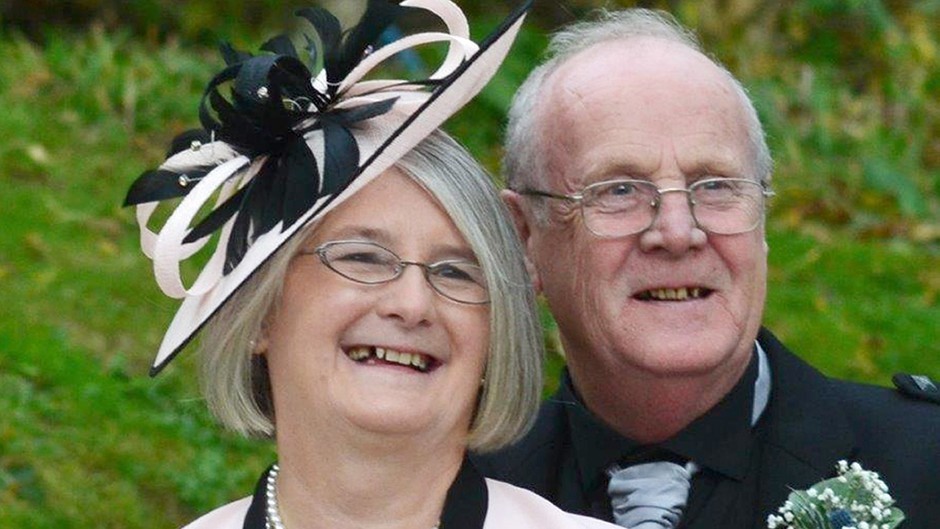A north-east nurse has told the inquest into the deaths of Britons killed in the Tunisia beach terror attack she urged medics to get a badly injured Scot to hospital as quickly as possible.
James McQuire died on his way to hospital after his ambulance sat outside the Sousse hotel where the atrocity it took place for up to 20 minutes.
The 66-year-old was with his wife Ann, 63, on their first holiday away after retiring when extremist Seifeddine Rezgui opened fire at the five-star Riu Imperial Marhaba Hotel, leaving 38 people dead.
The hearing into Rezgui’s 30 British victims heard the Glasgow-born couple, who lived in Cumbernauld, North Lanarkshire, were shot near the hotel swimming pool as they tried to flee.
Mrs McQuire died at the scene but her husband, who had lain wounded but conscious next to the body of his wife of 43 years, died later in the back of an ambulance as he was being taken to hospital.
Holidaymaker Carol Harrison, a staff nurse from Aberdeen Royal Infirmary who tended Mr McQuire, said apart from a doctor and the ambulance crew she saw no other medically trained people at the scene before leaving in the ambulance and was told there were no first aid kits available.
She told the hearing at the Royal Courts of Justice in London the ambulance looked more like a “patient transport” vehicle rather than an emergency one, lacking any equipment barring oxygen.
Asked how long it waited outside the hotel she said: “It was 15 to 20 minutes. I asked several times ‘can we go? This man is having trouble breathing, he needs to go to hospital’.”
After the ambulance finally left, she said, Mr McQuire suffered a cardiac arrest.
Mrs Harrison, a nurse for 37 years, told how she and husband Brian, a trained first aider, had gone to the aid of the wounded.
She said she came across “Jim from Cumbernauld” as he lay next to his wife but decided not to move him because he had been shot in the pelvis, fearing the wound, which had stopped bleeding, would restart if she did.
But she said as she comforted him hotel staff came and lifted him on to a sun lounger before taking him to the ambulance.
Judge Nicholas Loraine-Smith, the coroner, asked: “You saw a doctor and you saw some ambulance staff. Apart from them did you see any medically trained people of any sort?”
Mrs Harrison replied: “No.”
In pen portraits, Mr and Mrs McQuire’s son Stuart said they had been robbed of a future retirement after years of hard work.
He wrote: “This was meant to be the first of many holidays, sadly this was not to be. They were taken from us before their time.
“They were both stolen from us in a senseless attack, along with so many. I feel they were just starting a new chapter in their lives where they could spend more time with each other.”
The couple were keen musicians who performed in a band called Tartan Spirits, the inquest heard.
More than 400 people attended their funeral at Abronhill Parish Church, where they had been active members of the congregation, in July 2015.
Mr McQuire was a shipyard engineer and trade union shop steward who spent most of his working life at the Yarrow shipyard and had most recently been a consultant on the Queen Elizabeth Class aircraft carrier project, the inquest heard.
He was a regular churchgoer and captain of the Boys’ Brigade, whose help extended to providing job character references for boys going on to get work as adults.
Mrs McQuire was a lab technician turned medical receptionist whose kindness extended to delivering prescriptions to people who could not pick them up.
She had stood out as an excellent singer at church, her son said, and quietly supported her husband’s work with The Boys’ Brigade.
Stuart McQuire wrote that since the attack his wife Nicola had given birth to his parents’ first grandchild, a girl who had been named Lily Ann in memory of her grandmother.
He said Lily had “brought joy to the family after so much tragedy”, but added: “It’s heartbreaking for the family that they have missed out on meeting Lily and they will not be able to watch her grow.”
